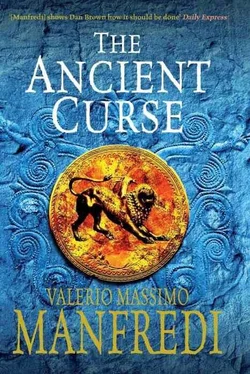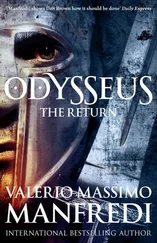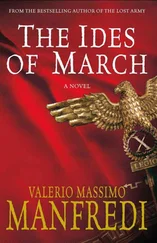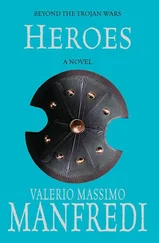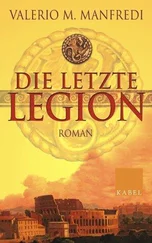He took more photos out of the folder and laid them on the desk in front of the director. ‘I’ve taken the liberty of contacting a colleague of mine, Dr Vitali, a palaeozoologist at the University of Bologna, and have asked her to examine the skeleton. You’ll have noticed the enormous size.’
‘I have,’ said the director. ‘The dimensions are beyond belief. Monstrous. Chimera-like, as if the parts did not come from a single being.’
Fabrizio pulled more photos out of his briefcase and placed them on the desk. These were of the alabaster sarcophagus with the reclining woman and, as he began to explain his interpretation of how the finely carved piece had found its way inside a cursed burial chamber, he realized that, despite the beauty and uniqueness of the piece, the director was no longer listening to him. He seemed distracted and preoccupied, as if some thought were tormenting him, and Fabrizio noticed that he had completely crumbled the cigar he was holding.
‘Are you feeling well, sir?’ he asked, hoping that Balestra might want to confide in him and let him in on the mysterious work that had been keeping him confined to his office for weeks on end, but the director instantly regained his customary aplomb.
‘Certainly, I’m fine,’ he replied. ‘Why do you ask?’
As if you didn’t know, thought Fabrizio, ready to let the subject drop. But Balestra hadn’t recovered completely; he was still massaging his temples as if his head were killing him. Fabrizio realized this was the best chance he’d ever have and decided to run the risk of irritating the director. It’s now or never, he thought, and took the plunge.
‘Well, because a lot of things just don’t add up here. The way you reacted to these photographs and to my words doesn’t seem normal to me. And, if I may say so, it also seems odd that you’ve been away from your office in Florence for so long, and that nine times out of ten you have your secretary say you’re not in, and that you don’t find the time to personally excavate an inviolate tomb like the one at Rovaio, and that you turn it over to the first guy who happens to be passing through. Wouldn’t it be best if both of us showed our cards?’
Balestra took another half-cigar from the box of Tuscans and put it in his mouth. He remained silent for a while, then began: ‘I think you’re right, Castellani. I’m willing to be honest with you.
‘It all started about three years ago, when a man came to see me, saying that while digging on a work site somewhere near the brook at Le Macine, he stumbled upon an ancient inscription, a bronze slab broken into six pieces. The landowner had apparently arranged for a fence to smuggle these pieces out and sell them to an antiques dealer in Switzerland or Luxembourg. But this bloke was ready to tell me where the pieces were if I would guarantee him a finder’s fee.
‘Now, this kind of thing happens very rarely – that a tomb robber, whether he’s a professional or has merely chanced upon some find, comes to offer whatever it is to us. I figured he was trying to get back at an employer who wasn’t treating him fairly or had perhaps dismissed him from his job. So maybe he thought he could get his revenge and even pick up a little extra money on the side. I told him that yes, there would be a reward attached to turning in an archaeological find, although I couldn’t tell him how much that might be, since I hadn’t seen the piece itself and had no idea of its value.
‘So this character, who seemed a bit strange from the start – a bit touched, to be honest – seemed happy with my promises and told me exactly where the inscription could be found. In a plastic bag covered with sand and stones on the bottom of the stream. We went at night, with the carabinieri from the special services-’
‘Was Lieutenant Reggiani with you?’ Fabrizio interrupted instinctively.
‘No,’ replied the director. ‘Reggiani is not with the special archaeological recovery service. He comes from ROS, the organized-crime division, and was moved here so he could take it easy after three years in Sicily and two in Calabria. He got here the year after this happened and I don’t think he knows anything about it.
‘We found the inscription and I informed my superiors: the Minister first of all, then the general director and a couple of my close colleagues. Five people in all. Six with you, Castellani. I then began to study the inscription, or rather the six fragments. I soon realized that there was a piece missing, a seventh fragment, but I couldn’t find out for the life of me what had happened to it. I questioned the finder, who – on the condition that he would remain anonymous – told me exactly where he’d dug up the slab. I immediately had the area scoured for signs of a historical context; a clue that would help me date the inscription, figure out how it got there. The investigation turned up nothing. Not a single element that referred to any historical period or place. So either this man was lying to me or the site was only a temporary hiding place where the slab could sit while the landowner was arranging to smuggle it out of the country.’
Fabrizio noticed that the director was no longer so pale and jittery. Just being able to talk about things had obviously eased the tension and anxiety that this investigation had caused for him. Fabrizio guessed that there was still more, and worse, to come.
‘As I was putting out feelers to try to get my hands on the seventh fragment, if it existed,’ the director continued, ‘I started examining the text of the inscription as well. I soon made an extraordinary discovery. The language it was written in was quite unique. It was definitely Etruscan, but it was infiltrated, so to speak, with archaic Latin expressions that made the text more comprehensible. I feel that, once this text is published, it will be cited by philologists and linguists all over the world.’
‘Do you mean you’ve found the key to translating an Etruscan text?’ asked Fabrizio incredulously.
‘I think I’m close. In any case, I’ve understood what it is: an ará . ’
‘A curse,’ mused Fabrizio.
‘Six curses in reality, one on each fragment. In all probability, the seventh is the final curse and the most dreadful of them all.’
Balestra fell silent and Fabrizio didn’t know what to say.
‘It can’t be a curse that has you so upset,’ Fabrizio said finally, trying to help Balestra put things into perspective. ‘The ancient world is full of curses that have never come true.’
Balestra’s expression was detached, almost annoyed. ‘This one has,’ he said.
‘Excuse me?’
‘This could-’ Balestra broke off and began again in a different tone of voice. ‘Look, Castellani, it can’t be anything more than a coincidence, but this curse was carved in bronze. Why? So that it would last through eternity, and that leads me to believe that the crime at its origin must have been a particularly gruesome one. I think we can assume that it took place here, that is in the ancient city of Velathri. Now you are showing me documentation attesting to the burial of a Phersu, seemingly dating back to the same era as the inscription, with material evidence hinting at an especially blood-curdling ritual. That’s where we stand, isn’t it?’
‘I would say so, yes,’ admitted Fabrizio.
‘It comes naturally to connect the two, even if we might rather not.’
‘It does.’
‘As if that were not enough, two individuals accused of attempting to open the tomb are found with their throats ripped out and their necks and faces devoured by some beast which has left no traces of any sort. I’ve never heard of such a series of coincidences.’
‘Have you spoken to Lieutenant Reggiani?’
Читать дальше
